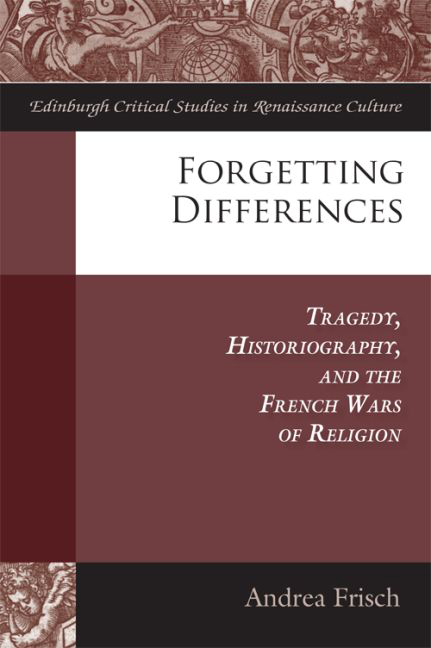Summary
By approaching the rhetoric of oubliance primarily as a strategy for reconciliation, I have sought to move the focus of my analysis away from the concept of forgetting and towards that of forgetting differences. Oubliance, in the texts studied here, does not entail censorship of the past so much as its reframing. The paratexts and programmatic statements I have highlighted afford insight into the ways in which elite writers forged the rhetorical tools with which they and their readers could reconcile themselves to their troubling recent past, and thus to one another.
Two central theses emerge from the material studied here. The first concerns the practice of history writing. Post-war historians attempting to serve the goal of reconciliation amplified the rhetoric of historical distance associated with critical historiography. Royally-sanctioned histories of the wars like those of Pierre Matthieu and Pierre-Victor Palma Cayet both repurposed and strengthened this aspect of Jean Bodin's method. For the royal historians, this was a tactic for managing an archive that was at once a gold mine and a minefield: firsthand documentary sources on the Wars of Religion were plentiful, but they were also incredibly volatile. The imperative of oubliance thus converged with new methodologies in historiography to consolidate the postulate of a sharp distinction between the present and the past.
The second thesis concerns the somewhat surprising role played by the rhetoric of emotion in the creation of this historical distance. Classical, medieval, and Renaissance Humanist writings across a number of genres enlist the term movere or esmouvoir with the explicit aim of inciting juridical, martial, or political action. Rhetorical techniques for “moving” listeners or readers to action in the world are designed to create an illusion of immediacy, thereby transforming historical events into vicarious experiences.
- Type
- Chapter
- Information
- Forgetting DifferencesTragedy, Historiography, and the French Wars of Religion, pp. 172 - 174Publisher: Edinburgh University PressPrint publication year: 2015



